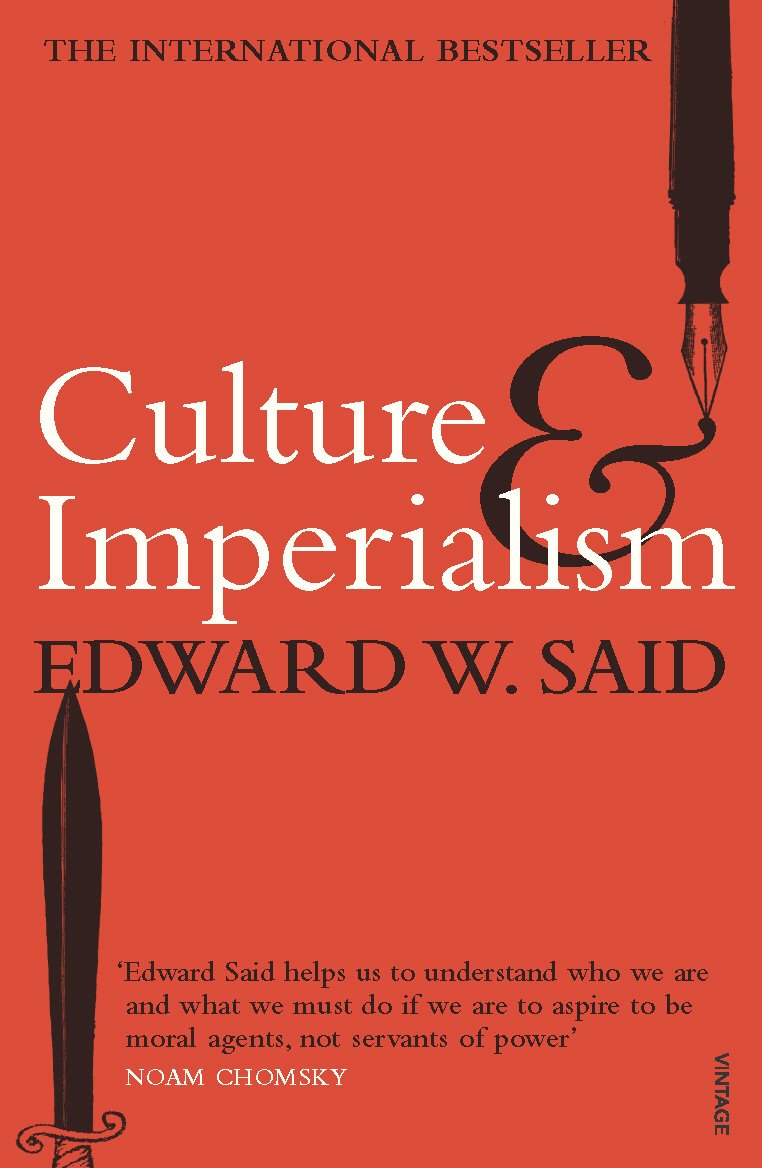About this deal
You can change your choices at any time by visiting Cookie preferences, as described in the Cookie notice. He traces the themes of 19th- and 20th-century Western fiction and contemporary mass media as weapons of conquest and also brilliantly analyzes the rise of oppositional indigenous voices in the literatures of the "colonies. Said believes that diversity is valuable and complex and cannot be reduced to simple identity symbiology.
The first part of this book explores imperialism through various works of literature/music (Mansfield Park, Heart of Darkness, and Aida, for example.The prototypical modern realistic novel is Robinson Crusoe, and certainly not accidentally it is about a European who creates a fiefdom for himself on a distant, non-European island. And yet, "is that an accurate representation of what resistance politics and culture were all about? The Foucauldian manner in which he excavates these materials is well suited, I’m only saddened that I’m not familiar with all the works he mentions (which I’m sure diluted my understanding of his thesis). And so if that environment happens to be imperialist, it’s worthwhile to look at their works through that lens.
However, the graceful writing predominates and even when things get difficult there are still some very valuable concepts being expressed. A written work is a kind of time capsule that cannot help but reveal the time in which it was written. Edward Saïd is, predictably, scathing in his criticism of 'nativism' -as a reactive response to the deprivations of empire that seeks refuge in imagined pasts, and embraces the fundamental distinction between 'them and us'- and the shortcomings of anti-colonial nationalism: “What had once been the imaginative liberation of a people- Aimé Césaire’s ‘inventions of new souls’ - and the audacious metaphoric charting of spiritual territory usurped by colonial masters were quickly translated into and accommodated by a world system of barriers, maps, frontiers, police forces, customs and exchange controls.As a cultural critic, Said is known for the book Orientalism (1978), a critique of the cultural representations that are the bases of Orientalism—how the Western world perceives the Orient. That's a project which has arguably become one of if not the dominant goals of the humanities in our age. At the same time this counterpoint involves an alteration between the general and the specific ( CI, 194); Said creates the general context from secondary sources, mostly historical, while for the specific he stresses an author, normally but not always a novelist, 3 and often a single work: Heart of Darkness, Mansfield Park, [End Page 259] Aida, Kim.
His style is extremely challenging, with Faulknerian sentence structures, and a dense, rich vocabulary. An academic text, no way around it - lots of "-isms" and assumed knowledge of historical events and intellectual history and thought leaders, but an opportunity to note, to learn, and to dig deeper. The Age of Empire, a term coined by historian Eric Hobsbawm in his classic anthology narrating the rise of European Bourgeois society and industrial capitalism, seems long behind us. The prose oscillated between elegance and a density that bogged me down at times (I couldn't help but laugh when, near the end, Saïd mocks the indecipherable jargon of modern academia; but, given his clarity and accessibility in other forums- lectures, interviews, speeches- he gets a pass).Said's second best analysis to imperialism, his 'Orientalism' book had covered this topic in different perspective, whoever culture and imperialism contents is all about how in 19 and 20 century the leading imperialist countries Britain and France; the colonisers tried to impose their cultures ideas and will to the colonised India, Africa and Carreabean Islands through not only trade- economic control, and military power, but through literature by imposing sets of code of conduct to the native people as far the language was concerned , and trough Novels ( Conrad, Kipler, Austen, Camus Flaubert ect. The well written book about contrast between Third World cultures' and imperial nature of Western power. Said actually develops the technique of ‘contrapuntal reading’ of the literature of the colonizer and the colonized and does an excellent job of applying it in practice. ahmad argues, among other things, that said reproduces the very discourse that he seeks to elucidate and overcome; the western corpus of literature retains its primacy, the non-western is flattened into a discourse of 'colonial' and 'postcolonial' that obscures dynamics internal to a country's literature in favour of eternally tethering it to its relationship with the west; the reliance on a logic of humanism even as said tries to situate himself outside of humanism results in an ultimately liberal imaginary; the incoherence of a theory that at once tries to trace an east/west literary divide back to the literature of antiquity and insists on its emerging as part of a tool of colonialism rather than interrogating the incorporation of classical texts into the colonial imaginary. He exhorts them to transcend their national interests and see common interests and values across the rest of the world.
Related:
 Great Deal
Great Deal 